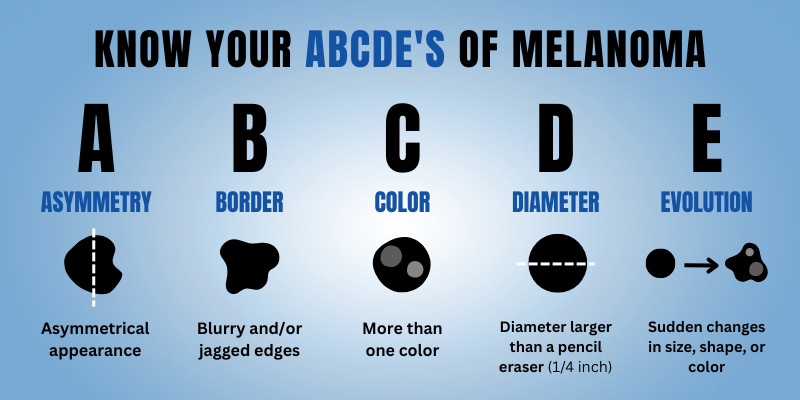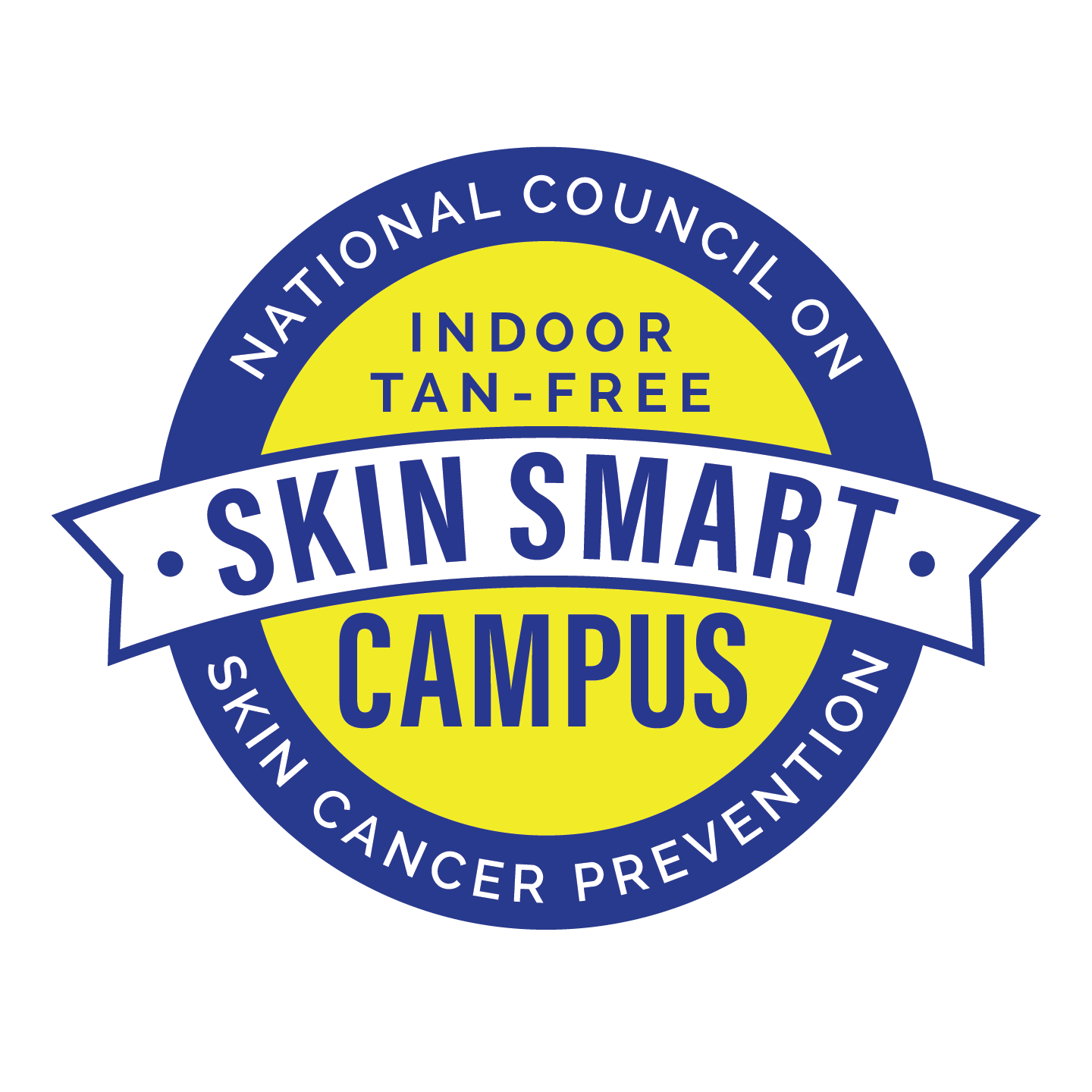- Home
- Health Services
- Health Happenings
- Skin Cancer Prevention
Skin Cancer Prevention
Skin Smart Campus Initiative
The University of Massachusetts Boston is recognized as a Skin Smart Campus by the National Council on Skin Cancer Prevention. We are dedicated to ensuring the well-being of our students by:
- Keeping indoor tanning devices off campus and affiliated buildings.
- Promoting skin cancer prevention policies and education.
Understanding Skin Cancer
Skin Cancer is the most common type of cancer in the United States. There are three main types:
- Basal and Squamous Cell Carcinomas: Highly curable but can be disfiguring and costly.
- Melanoma: The third most common skin cancer, which can be deadly.
Risk Factors of Skin Cancer
General risk factors include:
- Light skin that burns, freckles, or reddens easily.
- A large number of moles.
- Personal or family history of skin cancer.
- History of sun exposure and sunburns, especially in early life.
- History of indoor tanning.
Even if you have a darker skin tone, you can still get skin cancer. It is often diagnosed later in people of color, making it harder to treat. Melanoma in people of color can occur on palms, soles, undernails, and other areas.
Sun Safety Practices
The majority of skin cancers are caused by exposure to ultraviolet (UV) light and can be prevented with sun safety practices:
- Seek Shade:
- Find shade under trees, shade sails, or pavillions.
- Carry a sun umbrella.
- Use a pop-up UV shelter at the beach or park.
- Avoid the sun from 10 AM - 4 PM if possible, when UV radiation is strongest.
- Wear Sunscreen:
- Use broad-spectrum UVA and UVB, SPF 30 or higher.
- Reapply every 2 hours and after swimming, sweating, or towelling off.
- Use about one ounce (a palmful) for full coverage.
- Wear Protective Clothing:
- Long sleeves and pants with a dense weave or built-in UPF.
- Wide-brimmed hat.
- Closed-toe shoes and socks.
- Wear Sunglasses:
- Choose sunglasses with UV protection.
- Protects delicate skin around the eyes and reduces the risk of cataracts and macular degeneration.
- Check the UV Index:
- Review the UV index (found in most weather apps).
- Dermatologists recommend protection when the UV index is 3 and above.
- Limit sun exposure as UV index levels approach 6 and above.
Self-Skin Exams
Performing regular self-skin exams can help detect melanoma early. Look for the following signs (ABCDEs of Melanoma):
- Asymmetry: Moles that are not symmetrical.
- Border: Moles with blurry or jagged edges.
- Color: Moles with more than one color.
- Diameter: Moles larger than a pencil eraser (6 mm or 1/4 inch).
- Evolution: Moles that change in size, shape, or color.

Additional Resources
- Facts & Statistics | Skin Cancer Foundation
- Skin Cancer in People of Color | Skin Cancer Foundation
- Sun Safety | US Environmental Protection Agency (EPA)
